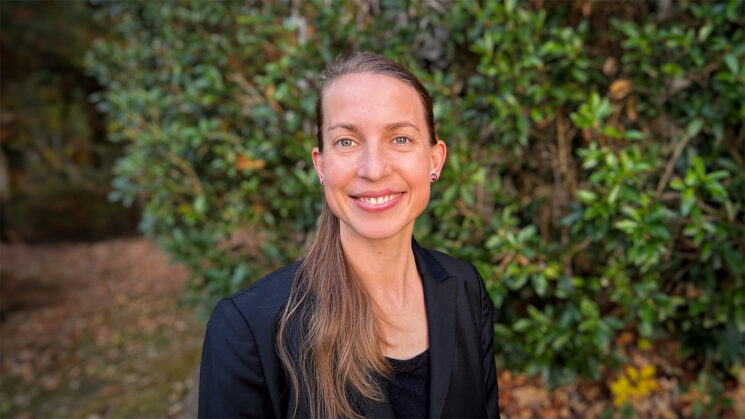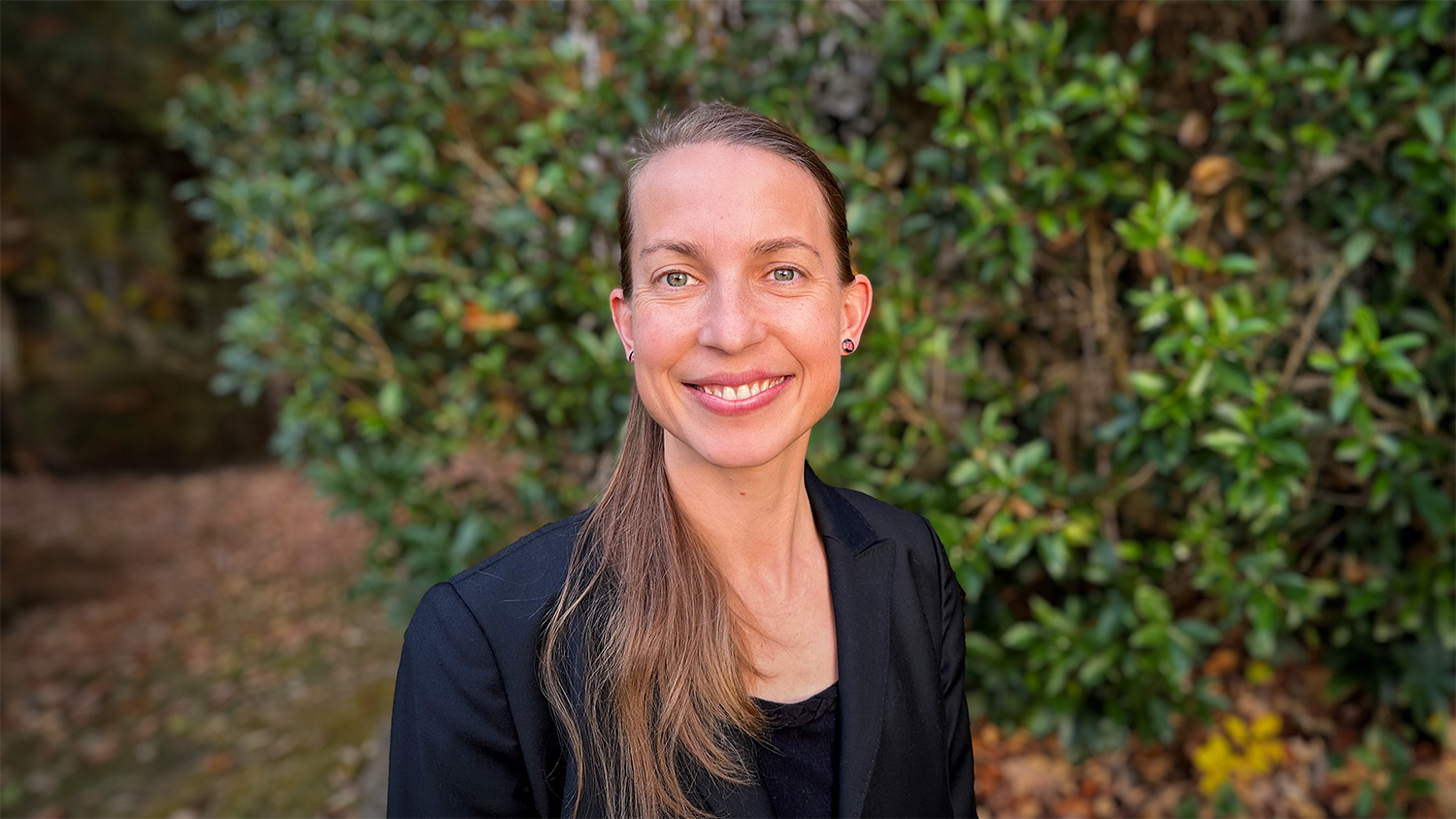
Khara Grieger, together with GES Co-director Jennifer Kuzma, will lead a $650,000 project that will support the responsible development of novel agrifood technologies to contribute to more sustainable food and ag systems.

Khara Grieger, NC State assistant professor and extension specialist
As researchers and scientists continue to develop genetic engineering and nanotechnologies for food and agriculture, they will also need to incorporate interdisciplinary approaches for evaluating the societal implications of their work.
This is exactly what Khara Grieger says she and Jennifer Kuzma will be working on with a new $650,000 project grant from USDA/NIFA (the U.S. Department of Agriculture’s National Institute of Food and Agriculture), entitled “Interdisciplinary Approaches to Evaluate Societal Implications and Foster Sustainability of Genetic Engineering and Nanotechnology in Food and Agriculture” (grant number 2022-67023-36730), funded through the NC State College of Agriculture and Life Sciences.
Grieger, an NC State assistant professor and extension specialist in environmental health and risk assessment in the Department of Applied Ecology, will serve as PI on the grant, with Jennifer Kuzma, Goodnight-NC GSK Foundation Distinguished Professor in the School of Public and International Affairs and Co-Director of the Genetic Engineering & Society Center, serving as co-PI.
The new USDA/NIFA project has three primary objectives to help ensure sustainability in the development of food and agricultural technologies:
- Assess societal implications and improve decisions of GE- and nano-agrifoods through benefit-risk evaluations;
- Identify strategies to ensure sustainable futures of GE- and nano-agrifoods through stakeholder engagement and exchange; and
- Develop interdisciplinary education and training opportunities to better evaluate societal implications of novel agrifood technologies.
“So in short, we need to understand risks and implications, as well as stakeholders’ perspectives in order to ensure responsible innovation of novel agrifood technologies,” Grieger said.
The project will examine specific case studies, such as genetically engineered bananas or new nano-fertilizers, and look at their benefits and risks. Then, they will wrap those up into a decision support framework, so that stakeholders can more easily review key information in order to make decisions.
Grieger and Kuzma both have extensive expertise in this kind of work around responsible innovation, and the grant will build off of previous projects, such as their USDA/NIFA grant studying responsible innovation of food nanotechnology.
This project will be part of a much larger effort at NC State to incorporate interdisciplinary expertise into all areas of research, including the GES Center, the Genetics and Genomics Academy (GGA) – led by GES Co-director Fred Gould, the N.C. Plant Sciences initiative (N.C. PSI), and the new Office of University Interdisciplinary Programs.
“I’m really excited that this project leverages our current work on responsible innovation and sustainability of these new technologies,” said Grieger. “There’s so much to do, and we can’t possibly solve it all in one grant, so this is just another bead in the necklace.”
Related Publications
- Ruzante, J. M., Shumaker, E. T., Holt, S., Mayer, S., Kokotovich, A., Cuchiara, M., Binder, A. R., Kuzma, J., & Grieger, K. (2022). Eliciting stakeholder perceptions using a novel online engagement platform: A case study on nano-agrifoods. RTI Press. RTI Press Occasional Paper No. OP-0071-2201. doi: 10.3768/rtipress.2022.op.0071.2201
- Kokotovich, A.E., Kuzma, J., Cummings, C.L., Grieger, K.. Responsible Innovation Definitions, Practices, and Motivations from Nanotechnology Researchers in Food and Agriculture. Nanoethics (2021). doi: 10.1007/s11569-021-00404-9
- Grieger, K.D, Merck, A.W., Cuchiara, M., Binder, A.R., Kokotovich, A., Cummings, C.L., Kuzma, J. Responsible innovation of nano-agrifoods: Insights and views from U.S. stakeholders. NanoImpact, Volume 24, 2021, doi: 10.1016/j.impact.2021.100365.
- Cummings C.L., Kuzma, J., Kokotovich, A., Glas, D., Grieger, K. (2021). Barriers to responsible innovation of nanotechnology applications in food and agriculture: A study of US experts and developers. NanoImpact, 100326, ISSN 2452-0748. doi:10.1016/j.impact.2021.100326.
- Kuiken T, Barrangou R, Grieger K. (Broken) Promises of Sustainable Food and Agriculture through New Biotechnologies: The CRISPR Case. CRISPR J. 2021 Feb 10:1-7. doi: 10.1089/crispr.2020.0098.
See all GES faculty publications >